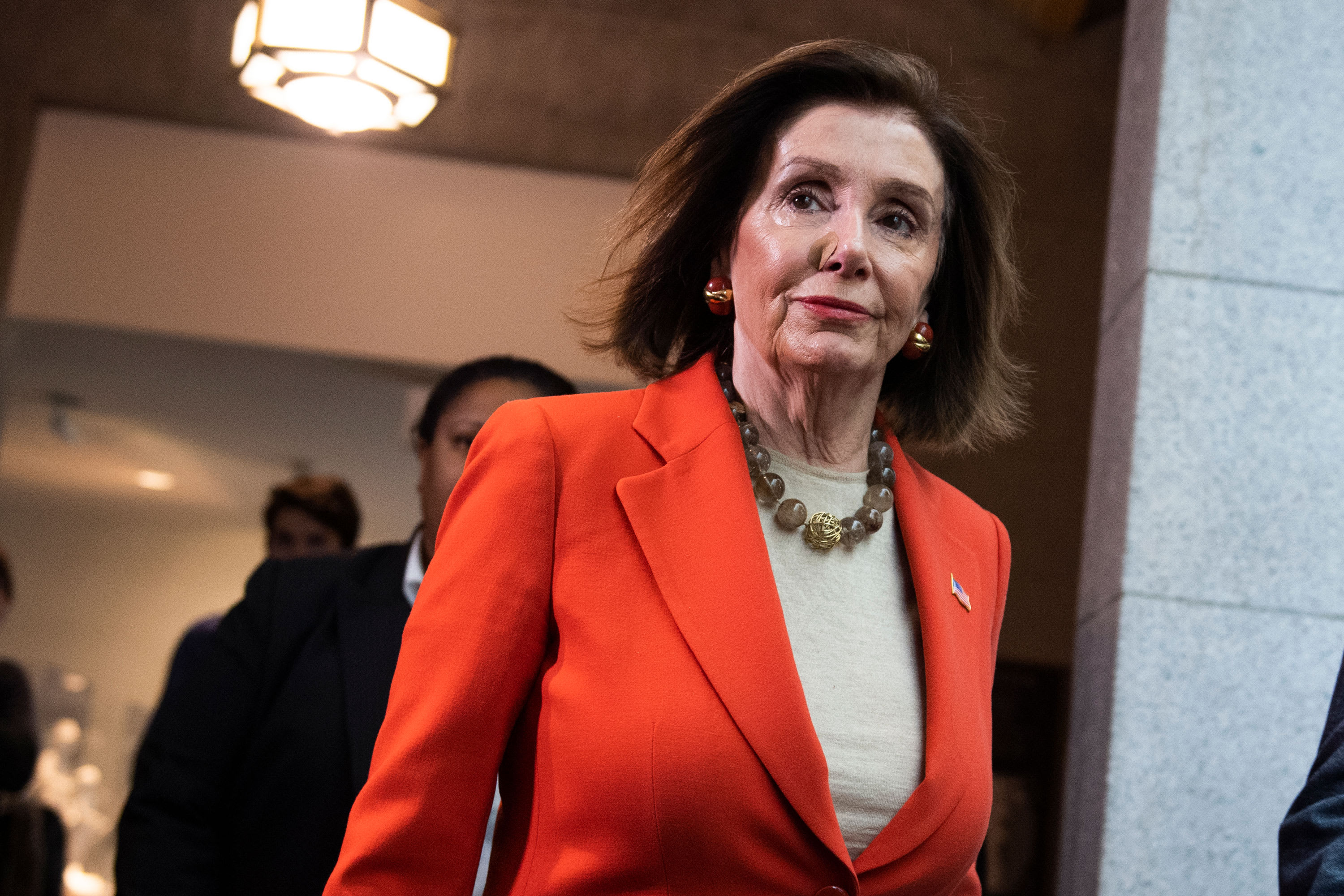
House Democrats and the Trump administration are near a deal on to replace the North American Free Trade Agreement after more than a year of deliberations, sources told CNBC.
If the White House sends ratifying legislation to Congress by Dec. 15 to kick off the approval process, the Democratic-held House could vote on ratifying the United States-Mexico-Canada Agreement by Dec. 18, two sources informed by the White House tell CNBC. House Speaker Nancy Pelosi will make the final scheduling determinations, and the USMCA vote could come in the immediate aftermath of a vote on articles of impeachment against President Donald Trump, these sources said.
Earlier Monday, two senior Democratic aides said the sides were close to an agreement but had nothing to announce yet. The Trump administration delivered proposed changes to House Speaker Nancy Pelosi’s office on Saturday, and House leaders were still studying them.
Senate Finance Committee Chairman Chuck Grassley, R-Iowa, also spoke to U.S. Trade Representative Robert Lighthizer on Monday and is “hopeful there will be an announcement on a deal soon,” the senator’s spokesman Michael Zona said. Grassley expects the Finance Committee will get formally briefed on trade developments later this week, he added.
The White House has pushed for USMCA’s approval in Congress before the end of the year as Trump seeks an economic and political win before the 2020 election. Democrats, who have sought tougher enforcement of labor rules to ensure U.S. companies do not move jobs to Mexico, have tried to show they can legislate even as they move forward with an impeachment inquiry against Trump.
When lawmakers receive the bill, it starts a 90-day window to pass it. Some sticking points seemed to remain over the weekend.
Speaker of the House Nancy Pelosi, D-Calif., and Rep. Richard Neal, D-Mass., are seen in the Capitol on Friday, December 6, 2019.
Tom Williams | CQ-Roll Call, Inc. | Getty Images
For instance, Mexican Foreign Minister Marcelo Ebrard said Sunday that the Mexican government would not accept a U.S. demand for American labor inspectors in Mexico as part of the agreement. It is unclear if the Office of the U.S. Trade Representative or House Democrats will insist on including the provision in a deal.
The Mexican government has discussed potential changes to the deal with USTR in recent weeks.
Spokespeople for House Ways and Means Committee Chairman Richard Neal, who is leading the Democratic talks with USTR, and USTR did not immediately respond to requests for comment.
Trump, Vice President Mike Pence and Republicans such as Grassley have pushed for Democrats to approve the deal in 2019. Many business groups have also put pressure on Congress to pass USMCA.
Stakeholders worry waiting will complicate the deal’s passage, as the Senate could have to hold an impeachment trial in January. The 2020 election will take up more of Washington’s attention next year, as well.
Labor groups such as the AFL-CIO had urged Democrats to make the case for tougher labor enforcement to protect American workers. Trumka told the Post that the federation of unions had “done quite well” in securing concessions.
He plans to meet with the AFL-CIO’s executive committee later Monday, the newspaper reported. The support of organized labor, a key political constituency for Democrats, was seen as important for the deal moving forward in Congress.
Trump spoke to Trumka on Monday about the trade agreement, Reuters reported, citing a source familiar with the conversation.
The U.S. exports more goods to Canada and Mexico than any other countries. As House Democratic leaders have pushed for changes to labor measures in the deal, some Democrats representing districts reliant on trade with the U.S. neighbors have urged swift passage.
Mexico has ratified a version of the agreement, while Canada has waited to approve it while it watches developments in the U.S.
Aside from labor rules, a pharmaceutical provision in USMCA has tripped up ratification progress. The agreement as designed now sets up a 10-year exclusivity period for biologic drugs, shielding companies from cheaper generic competitors during the period. Democrats have argued the measure hurts consumers, while business groups contend it protects businesses’ intellectual property and research investment.
Pharmaceutical prices could play a major role in 2020 election messaging.
— Correction: This story was updated to reflect that Democrats and the Trump administration are near a tentative North American trade deal.

